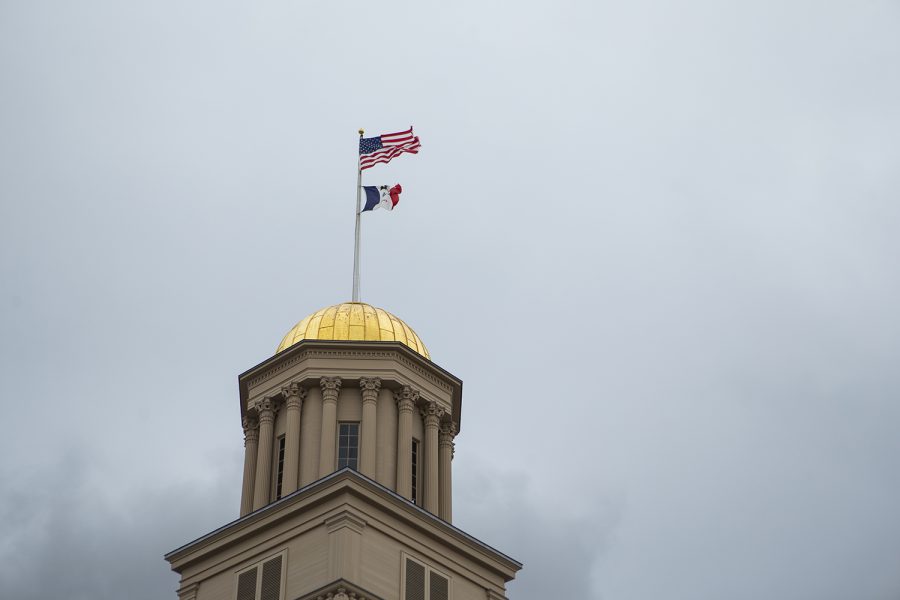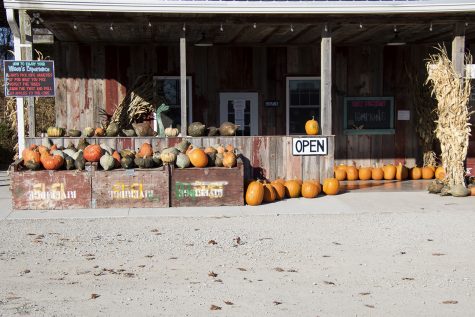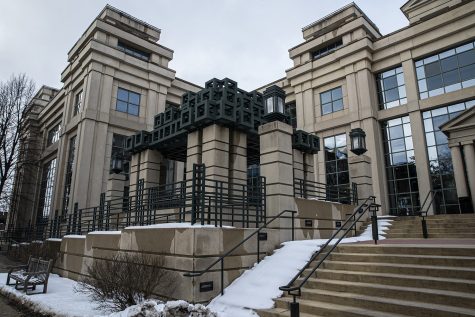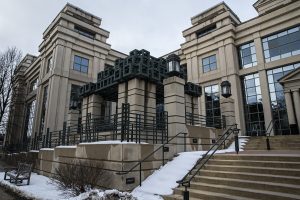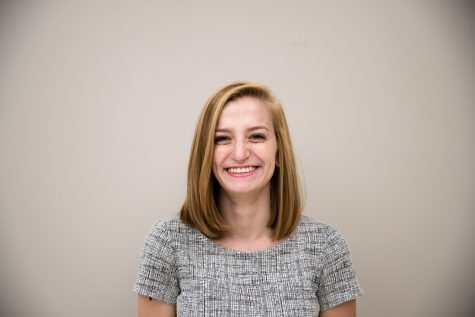Regents name UI Presidential Search Committee members
Following University of Iowa President Bruce Harreld’s retirement announcement in early October, the Iowa Board of Regents named the 21-member search committee on Tuesday.
The Old Capitol is seen on Thursday, March 12, 2020.
November 11, 2020
The University of Iowa is continuing its search for the next top Hawkeye by announcing its Presidential Search Committee members — who will be tasked with selecting finalists for the next president of the university.
The Iowa Board of Regents, which governs Iowa’s three public universities, announced which campus and community members will serve on the University of Iowa’s Presidential Search Committee on Tuesday.
The individuals who have been appointed to the committee are from a variety of disciplines. All four branches of shared governance are represented, as are the three unions that serve University of Iowa students, staff, health care workers.
The only college that does not have anyone on the committee is the College of Education. Graduate and Professional Student Government President Mackenzie Graham and Graduate Student Senate President John Piegors are the two graduate students appointed to the committee. One undergraduate student, Undergraduate Student Government President Connor Wooff, was also appointed.
Two regents sit on the committee. Regent Nancy Boettger was appointed to the board in 2017 and Regent Jim Lindenmayer was appointed in 2018. Lindenmayer received his Ph.D. from the UI. Boettger has no direct connection to the UI.
The committee will hold its first meeting in December. A date and time has yet to be announced.
In an interview with The Daily Iowan on Oct. 30, the two committee chairs, Sandra Daack-Hirsch and John Keller, said they were enthusiastic about the committee and its potential.
Daack-Hirsch said a driving force in selecting committee members was the Best Practice for Faculty Engagement in a UI Presidential Search guidelines developed in 2017. The report recommended at least 50 percent of the search committee be made up of faculty members.
As The Daily Iowan previously reported, 11 of 21 committee members are faculty members from a variety of disciplines.
Daack-Hirsch said a focus when developing the committee was to encourage broad, campus-wide participation from a variety of fields.
“We worked with campus leaders, so people who are leaders in those categorical areas are nominated committee members to represent them,” she said. “When we look at the total make up of the committee, we want to make sure there’s diversity amongst the members. We want different areas of campus to be represented, but not overrepresented.”
There has never been a UI presidential search conducted primarily online before, which has led to its own difficulties. Keller said he looks forward to getting to know the members of the committee while focusing on how to find the next top Hawkeye during COVID-19.
“We’re going to be able to conduct a lot of our work virtually,” he said. “There will probably be some meetings though that we will just want to have face-to-face, socially distanced with the option to Zoom in…There are a lot of social dynamics that go into important committee work that you don’t necessarily obtain from Zoom calls.”
Daack-Hirsch and Keller said they are still in the process of planning how the committee will meet and interact, but they are looking to ensure they create a community within the committee.
The committee will work with the search firm the regents select to identify finalists to take over for current UI President Bruce Harreld. The board issued a Request for Qualification for consulting firms to help with the search in early October.
In 2015, the regents selected Parker Executive Search of Atlanta, Georgia, to assist in the search. According to the request’s timeline, the regents will award a contract on Nov. 13.
The committee, Daack-Hirsch said, is not the only way students, staff, faculty, and community members can be involved in the process of selecting the 22nd UI president. She said there will be several more opportunities for individuals to have their voices heard in this process.
The search committee is just one way people will participate in this process,” she said. “There will be many ways that campus can participate such as forums to identify characteristics we are looking for in our next president. We have leadership from campus on the search committee and we expect that they will engage with their constituents along the way and bring their feedback to the search committee for consideration. There also will be time for campus to engage with and give feedback on final candidates.”



